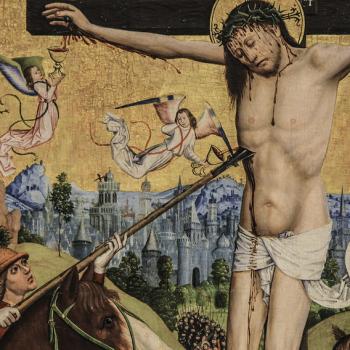Religion is in trouble in the United States. The word, that is.
Sociologists say that we are increasingly divided over religion’s place in public life but that when it comes to language, Americans are moving in one direction: toward a new vernacular.
We’re no longer “religious.” We’re “holy.” We’re “faithful.” We’re “spiritual.” We talk about what “the gospel compels us to do” or “gospel living.” Or “sabbatical living” and “God-oriented behavior.”
This is true across the ideological range, but for different reasons.
On one side of the spectrum are people such as prominent liberal scholar Diana Butler Bass, author of last year’s “Christianity After Religion,” who says the word “religion” is laden with negative, hurtful and political baggage. The 20 percent of Americans who now call themselves unaffiliated with any religious group see religion as much too focused on rules.
On the other side are people such as super-popular shock pastor and writer Mark Driscoll, an evangelical conservative whose sermons have such titles as “Why I hate religion.” He preaches that the institutional church has wrongly let people feel good about themselves for their actions (such as going to worship services) instead of what they believe (which should be the Bible’s literal truth, in his view).
A member of Driscoll’s church produced one of early 2012’s most shared videos, “Why I love Jesus but hate religion,” which has been watched more than 25 million times. Set to cool music, it opens with a young man asking, “What if I told you Jesus came to abolish religion?” Later, it characterizes most churchgoers as hypocrites and religion as a Band-Aid and “like spraying perfume on a casket.”
I suppose this hinges on what one considers to be the definition of “religion.” I have heard solid teachers make the excellent point that religion has to do with how a human being finds God, whereas Christianity is all about the opposite: how God finds human beings. I have also heard this approached from a sociological angle, that religions are institutional, a matter of specific communities and formalized doctrines and behaviors, as opposed to individual spiritual experience.
And yet, isn’t it clear that some people are “religious” and some aren’t? Should the term be retained and rehabilitated? Should the reality–communities, institutions, the communal dimension of spirituality–be recovered and defended, as opposed to the “spirituality” of individual private experience?
Or would Christians do better to oppose all “religions” and to contrast them with the Gospel of Christ? Might that be a good cure for the interfaith movement? After all, didn’t Rome persecute the early Christians as “atheists”? Should we become that kind of atheists again?











